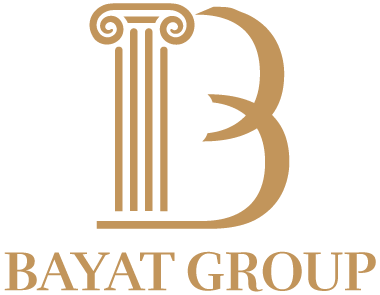Spanish Prime Minister has announced plans to cancel the “golden visa” program, which allowed non-EU nationals to obtain residency in Spain in exchange for real estate or other investments. Spaniards are joining a growing list of nations reforming or canceling their residency by investment programs. The decision marks a shift in policy that reflects broader concerns about housing affordability, economic transparency, and alignment with European Union (EU) directives.
Spain to End Real Estate Investment Option
Spain has decided to scrap the “golden visa” program after reviewing a report from the Housing Ministry in April 2024, according to Prime Minister Pedro Sánchez. 94 percent of all Spanish golden visas are issued for real estate investments, mostly in major cities with highly stressed housing markets where locals struggle to find affordable housing, stated Sánchez, and pledged to end this “speculative business”. He added that the reform will be initiated at the upcoming Cabinet meeting.
Spain introduced the “golden visa” program in 2013 during post-economic crisis recovery efforts. It allowed non-European Union citizens to obtain residency rights by investing mortgage-free €500,000 or more in Spanish real estate. The program also offered alternative investment options, such as investment of at least €1 million in Spanish financial institutions or shares in Spanish companies, and investment of at least €2 million in Spanish Public Debt. However, it is unclear yet whether the reform will end just the real estate investment option or lead to the full cancellation of the program.
Golden Visas and EU Concerns
“Golden visas” programs, also known as residence by investment schemes, allow wealthy individuals to obtain residency rights by making substantial investments in a country, typically in real estate, businesses, or other assets. Applicants must meet specific criteria, including having a clean criminal record and possessing the necessary financial means to fulfill the investment. There is also citizenship by investment programs, known as “golden passports”, which grant foreigners citizenship through similar investment avenues. In the EU, only Malta offers citizenship by investment program, giving foreign investors a chance to obtain Maltese citizenship in either 12 or 36 months, depending on the investment amount. However, there are also five Caribbean countries Antigua & Barbuda, Dominica, Grenada, St Lucia, and St Kitts & Nevis operating citizenship by investment schemes and their citizens enjoy visa-free access to the EU. European officials want their Caribbean counterparts to impose more regulations and stringent Due Diligence practices in their economic citizenship programs, and the Caribbean nations are eager to follow suit. In March 2024, four of the five countries (St Lucia was absent) signed a Memorandum of Agreement to strengthen the integrity and transparency of their programs to address international worries.
The EU has expressed concerns about these programs, citing risks related to security, money laundering, tax evasion, and the potential erosion of EU norms and values. The European Commission has been calling to phase out citizenship by investment schemes since 2022 reflecting a broader push towards greater regulatory scrutiny and accountability in economic citizenship and residency programs.
European residency by investment programs have also become the subject of discussions in the EU institutions in recent years. The EU authorities want one regulatory framework for all schemes in Europe and recommend member states to conduct thorough checks before issuing any residence permits.
The Wave of Reforms
Concerns raised by the European Commission regarding security risks, money laundering, tax evasion, and possible illicit infiltrations associated with such schemes have prompted regulatory reforms and increased scrutiny across the EU.
The European Commission’s stance is clear: these schemes are problematic. In October 2022, they urged Albania to abandon plans for a “golden passport” program, citing the risks it posed. Similarly, the Commission proposed suspending Vanuatu’s visa waiver agreement due to concerns about their economic citizenship program granting easy access to the Schengen zone.
Portugal canceled the real estate investment option for its “golden visa” program in October 2023, but other options, such as venture capital or private equity fund investments remain open.
In February 2022, the United Kingdom ended its Tier 1 Investor Visa scheme in an attempt to scrap the inflow of dirty money from Russia.
Following reviews and international reports, Ireland decided to end the Immigrant Investor Program in February 2023, but the scheme remains open for pending projects.
The Netherlands plans totally to suspend its “golden visa” scheme by January 2024.
Greece has also recently reformed its “golden visa” program by drastically increasing the minimum investment threshold for the real estate investment option in key and well-developed regions of the country. They have also banned short-term rentals. The jump in the minimum investment was from €250,000 to €800,000. However, the €250,000 threshold remains if the industrial or commercial premises are converted into residential.
Cyprus, Malta, Latvia, Hungary, and Italy are also offering residence permits to foreign investors who meet the set criteria and make qualified investments.
Implications
The recent decision by the Spanish government will have implications for foreign investors, particularly those from China, Russia, and other countries who have utilized the program to secure residency in Spain. While the immediate impact on the real estate market may be limited, the move underscores Spain’s prioritization of sustainable housing policies over investor-driven residency schemes. Critics argue that the program’s elimination may deter foreign investment, but proponents highlight the need to prioritize local housing needs and prevent property market distortions.
Spain’s decision aligns with broader trends in the EU and reflects a commitment to European norms and values while addressing domestic housing challenges.
The global context of residency by investment programs highlights a complex interplay between economic incentives, security considerations, and social impacts. While golden visas offer benefits such as attracting foreign capital and stimulating economic growth, they also raise questions about wealth distribution, housing affordability, and transparency in investment vetting.
Global Trends
The rise of “passport portfolios” and the popularity of “golden visas” as means for alternative residency among wealthy individuals underscores a broader trend of geographic diversification, risk management, and enhanced global mobility strategies. Factors such as political stability, access to global markets, and lifestyle preferences influence decisions regarding second citizenships or residencies.
Spain’s decision to axe the golden visa program reflects a strategic recalibration of priorities towards sustainable housing policies, economic transparency, and alignment with EU norms. It also signals a broader shift in global migration strategies among high-net-worth individuals seeking diversified citizenship and residency options.
The wave of “golden visa” and “golden passport” scheme reforms highlights the complex interplay between economic incentives, social considerations, and regulatory imperatives. While investment-based migration programs can stimulate economic growth, they also raise questions about wealth distribution, housing affordability, and the integrity of financial systems. Governments face the challenge of balancing economic competitiveness with social equity and security imperatives in designing effective residency and citizenship programs.
As global migration patterns evolve, governments and investors navigate a dynamic landscape shaped by economic, geopolitical, and social factors. Future trends may witness enhanced due diligence, transparency measures, and regulatory frameworks in residency and citizenship by investment programs globally.

